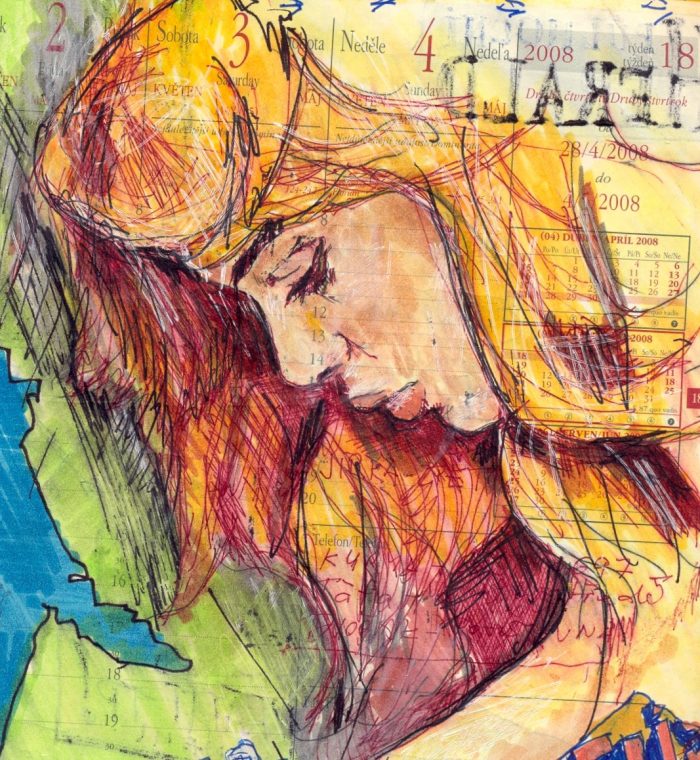I’ve been writing since I was old enough to hold a crayon.
My mom has been editing my writing since I was old enough to hold a crayon. She’s an author. She can’t help it, and I’m grateful for it.
Journaling is something I’ve always done, and as our world has changed, the way I journal has stayed the same—good, old-fashioned pen and paper.
Writing is a therapy like no other. It contains such power for me, and I have such a need to simply get it all out; to let the feelings boil over and spill onto the pages in the form of the written word. When I go a while without writing, I can feel it. It’s a feeling of nearly being trapped, and the only escape is to open to a blank page and start scribbling.
Sometimes, just holding my open journal in one hand and a pen in the other—without even writing, but gazing out into the foggy oblivion of my mind—is enough to soothe me. While traveling, I’ve written my thoughts on whatever is handy—a napkin, my plane ticket, the margins of a book.
Journaling is immensely important to me, and here are my top two reasons why.
#1. Good memories.
I feel that travel journals are the most important of all the journals. I have one for each time I’ve traveled. Most of them are half-filled because I so quickly move on to the next adventure and therefore, a new journal.
As a nomad, how could I ever possibly remember it all—all the beauty and the joy, the challenges, and the people? And the most intense feelings—the overwhelming gorgeous sadness that is present in the heart of every solo traveler. It would be nearly impossible. In fact, it is impossible. I have seen more than I could ever remember. But it’s all there in my journals.
One day, I’ll read through them; when I’m old and dying, I’ll read my memories and be comforted by the things I’m reminded of.
#2. Bad memories.
What?! Oh yes, my friend. The bad memories are important. Perhaps, I dare say, more so than the good ones. How do we learn as a child? By making mistakes. Only once will we pull that pot of boiling water off the stove onto our delicate little bodies. Well, hopefully only once.
But life is like that boiling pot of water, isn’t it? Time and again we reach for that pot and we get burned. The flesh wounds heal, but it still hurts. Then, the time comes when we forget the pain, and we reach our fingers out again because maybe this time the water won’t be so hot.
How many times have you been wrong about the intensity of the heat and the resulting pain? For me…it’s been more times than I can count.
Our personal history is like an addiction: we must understand it and make a conscious effort to change it. But only if we truly want to change.
Over this past summer, I wrote something in my journal that I titled “Remember This.” It was a haphazard purge of sh*tty, man-induced feelings that I wanted my future self to remember, because I never, ever want to feel that way again. I wanted to remind myself that no one is worth ever having those terrible feelings again, and that someone saying pretty words to you doesn’t mean they love you.
We live in a world where longevity is rare, Tinder is too appealing for those who are afraid of genuine emotion (yours or theirs), and men would rather live with their mothers than take the risk of living their own life.
Using a journal to write it all out is a diplomatic way to deal with your rage and disappointment. Saying aloud all the hurtful things you want to say won’t make it better, but writing them will, and somewhere down the line, it may remind you to not let yourself be fooled again.
So, go buy yourself a blank journal with a snazzy cover, or pick up that napkin sitting next to you, and write down what’s in your heart, good or bad. I’m willing to bet that after just a few sentences, you’ll start to feel beautifully liberated.


 Share on bsky
Share on bsky





Read 0 comments and reply